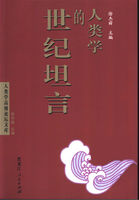STRIKES AND COMBINATIONS OF WORKERS
"Every upward movement in wages can have no other effect than a rise in the price of corn, wine, etc., that is, the effect of a dearth. For what are wages? They are the cost price of corn, etc.; they are the integrant price of every- thing. We may go even further: wages are the proportion of the elements composing wealth and consumed reproductively every day by the mass of the workers. Now, to double wages ... is to attribute to each one of the producers a greater share than his product, which is contradictory, and if the rise extends only to a small number of industries, it brings a general disturbance in exchange; in a word, a dearth....
"It is impossible, I declare, for strikes followed by an increase in wages not to culminate in a general rise in prices: this is as certain as that two and two make four."(Proudhon, Vol.I, pp.110 and 111)
W e deny all these assertions, except that two and two make four.
In the first place, there is no general rise in prices .
If the price of everything doubles at the same time as wages, there is no change in price, the only change is in terms.
Then again, a general rise in wages can never produce a more or less general rise in the price of goods. Actually, if every industry employed the same number of workers in relation to fixed capital or to the instruments used, a general rise in wages would produce a general fall in profits and the current price of goods would undergo no alteration.
But as the relation of manual labor to fixed capital is not the same in different industries, all the industries which employ a relatively greater mass of capital and fewer workers, will be forced sooner or later to lower the price of their goods. In the opposite case, in which the price of their goods is not lowered, their profit will rise above the common rate of profits. Machines are not wage-earners. Therefore, the general rise in wages will affect less those industries, which, compared with the others, employ more machines than workers. But as competition always tends to level the rate of profits, those profits which rise above the average rate cannot but be transitory. Thus, apart from a few fluctuations, a general rise in wages will lead, not as M. Proudhon says, to a general increase in prices, but to a partial fall -- that is a fall in the current price of the goods that are made chiefly with the help of machines.
The rise and fall of profits and wages expresses merely the proportion in which capitalists and workers share in the product of a day's work, without influencing in most instances the price of the product. But that "strikes followed by an increase in wages culminate in a general rise in prices, in a dearth even" -- those are notions which can blossom only in the brain of a poet who has not been understood.
In England, strikes have regularly given rise to the invention and application of new machines. Machines were, it may be said, the weapon employed by the capitalist to quell the revolt of specialized labor. The self-acting mule , the greatest invention of modern industry, put out of action the spinners who were in revolt. If combinations and strikes had no other effect than that of making the efforts of mechanical genius react against them, they would still exercise an immense influence on the development of industry.
"I find," continues M. Proudhon, " in an article published by M. Leon Faucher... September 1845, that for some time the British workers have got out the habit of combination, which is assuredly a progress for which one cannot but congratu- late them: but this improvement in the morale of the workers comes chiefly from their economic education. 'It is not on the manufacturers,' cries a spinning-mill worker at a Bolton meeting, 'that wages depend. In periods of depression the masters are, so to speak, merely the whip with which neces- sity arms itself, and whether they want to or not, they have to deal blows. The regulative principle is the relation of supply and demand; and the masters have not this power'....
"Well done! " cries M. Proudhon. "These are well-trained workers, model workers, etc., etc., etc. Such poverty did not exist in Britain;it will not cross the Channel."
(Proudhon, Vol.I, pp.261 and 262)
Of all the towns in England, Bolton is the one in which the radicalism is the most developed. The Bolton workers are known to be the most revolutionary of all. At the time of the great agitation in England for the abolition of the Corn Laws, the English manufacturers thought that they could cope with the landowners only by thrusting the workers to the fore. But as the interests of the workers were no less opposed to those of the manufacturers than the interests of the manufacturers were to those of the landowners, it was natural that the manufacturers should fare badly in the workers'
meetings. What did the manufacturers do? To save appearances they organized meetings composed, to a large extent, of foremen, of the small number of workers who were devoted to them, and of the real friends of trade .
When later on the genuine workers tried, as in Bolton and Manchester, to take part in these sham demonstrations, in order to protest against them, they were forbidden admittance on the ground that it was a ticket meeting -- a meeting to which only persons with entrance cards were admitted. Yet the posters placarded on the walls had announced public meetings. Every time one of these meetings was held, the manufacturers' newspapers gave a pompous and detailed account of the speeches made. It goes without saying that it was the foremen who made these speeches. The London papers reproduced them word for word. M. Proudhon has the misfortune to take foremen for ordinary workers, and enjoins them not to cross the Channel.
If in 1844 and 1845 strikes drew less attention than before, it was because 1844 and 1845 were the first two years of prosperity that British industry had had since 1837. Nevertheless none of the trades unions had been dissolved.















